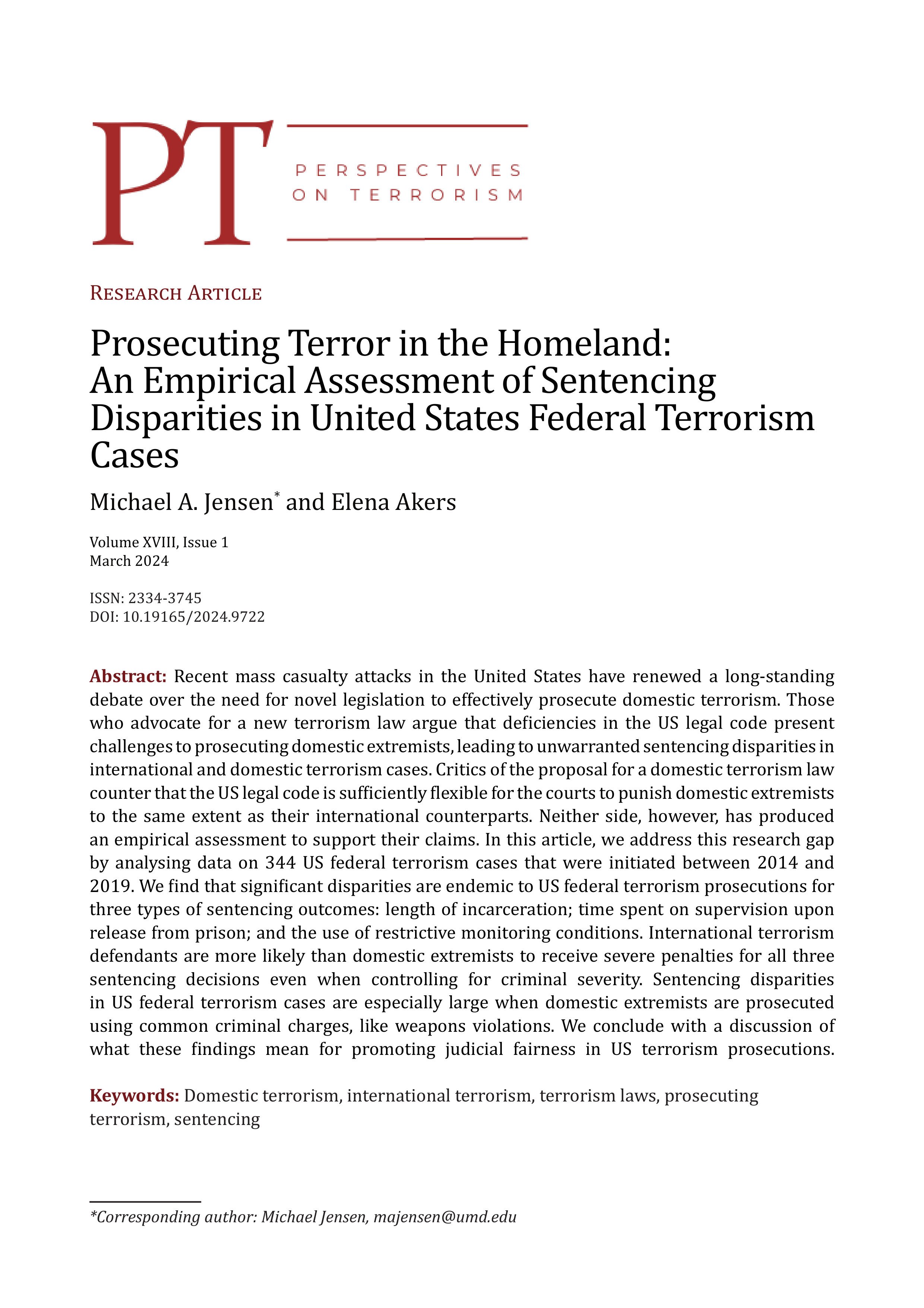By Michael A. Jensen and Elena Akers
Recent mass casualty attacks in the United States have renewed a long-standing debate over the need for novel legislation to effectively prosecute domestic terrorism. Those who advocate for a new terrorism law argue that deficiencies in the US legal code present challenges to prosecuting domestic extremists, leading to unwarranted sentencing disparities in international and domestic terrorism cases. Critics of the proposal for a domestic terrorism law counter that the US legal code is sufficiently flexible for the courts to punish domestic extremists to the same extent as their international counterparts. Neither side, however, has produced an empirical assessment to support their claims. In this article, we address this research gap by analysing data on 344 US federal terrorism cases that were initiated between 2014 and 2019. We find that significant disparities are endemic to US federal terrorism prosecutions for three types of sentencing outcomes: length of incarceration; time spent on supervision upon release from prison; and the use of restrictive monitoring conditions. International terrorism defendants are more likely than domestic extremists to receive severe penalties for all three sentencing decisions even when controlling for criminal severity. Sentencing disparities in US federal terrorism cases are especially large when domestic extremists are prosecuted using common criminal charges, like weapons violations. We conclude with a discussion of what these findings mean for promoting judicial fairness in US terrorism prosecutions.
Perspectives on Terrorism Volume XVIII, Issue 1 March 2024




















